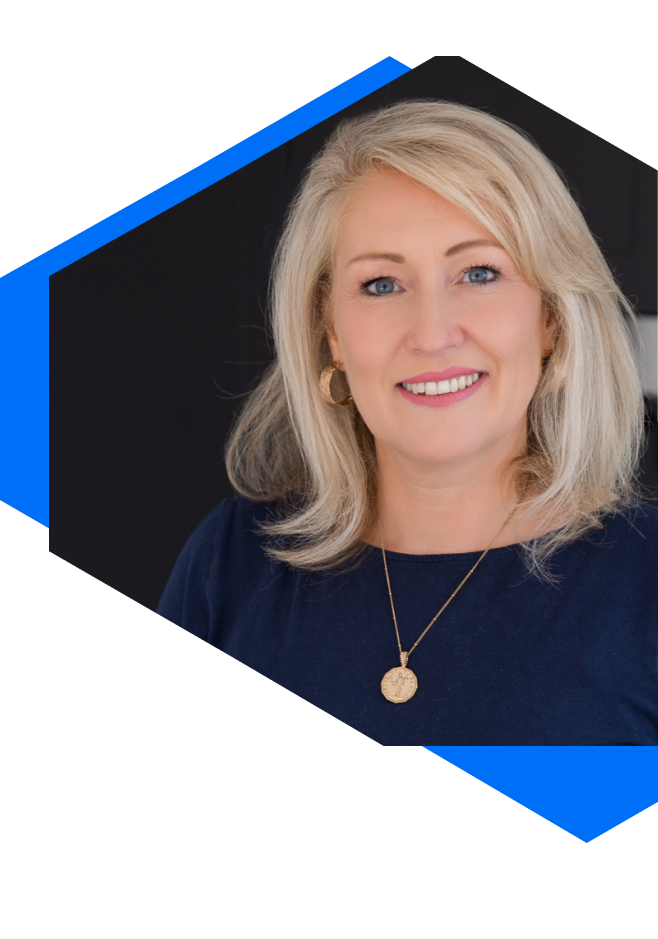How to become a fractional CFO in 5 steps
The role of accountants and bookkeepers is undergoing change. Despite the growing complexity of compliance tasks, accounting professionals are increasingly stepping into strategic roles that drive their clients’ growth.
In fact, over the past five years, there has been a 75% increase in demand for investment and business strategy advice and a 70% growth in payroll services, as highlighted in our research The fractional CFO playbook. This shift reflects a growing need for accountants to evolve into fractional CFOs—financial leaders who provide part-time, high-level strategic guidance to their clients.
Becoming a fractional CFO is not just a career move; it’s an opportunity to deliver exceptional value, deepen client relationships, and position yourself as an indispensable advisor.
This blog outlines actionable steps to help you transition into this role.
Jump to:
Why does this matter?
The steps to becoming a fractional CFO.
1. Expand your knowledge base
2. Build a value-added service portfolio
3. Leverage technology
4. Establish a strategic mindset
5. Market yourself effectively
Final thoughts
Why does this matter?
Businesses today are navigating complex financial challenges, from cash flow management to investment planning. Yet, 34% of firms struggle with inflexible systems, and 27% report negative client satisfaction due to outdated processes. By adopting the mindset and tools of a fractional CFO, you can overcome these barriers and unlock new opportunities for growth—for both your clients and your practice.
The steps to becoming a fractional CFO
1. Expand your knowledge base
Transitioning to a fractional CFO role requires developing skills that go beyond traditional accounting. To succeed, focus on:
- Financial forecasting
Learn advanced methods to predict trends and provide actionable insights for clients. While spreadsheets remain a reliable tool, you can also explore software solutions that integrate with your clients’ ledgers, automating data analysis and forecasting. However, the accuracy of your forecasts depends heavily on the quality of data you’re using. Outdated or incomplete data will result in unreliable forecasts, so ensuring data integrity is critical.
- Cash flow optimisation
Master techniques to improve working capital, negotiate favourable supplier payment terms, and identify cost-saving opportunities. Start small by helping your closest clients manage their cash reserves, introducing simple measures like cash flow tracking or invoice financing. Over time, you can scale your expertise to address complex liquidity challenges.
- Business strategy
Align financial goals with the broader vision of a company. This involves understanding the market, identifying growth opportunities, and advising on financial planning for initiatives like expansions, mergers, or investments.
💡 Pro Tip:
There isn’t a single qualification that makes you a fractional CFO, but you can fast-track your journey with executive-level courses. Consider finance analyst certifications such as the CFA (Chartered Financial Analyst), or short-term business strategy programmes offered by university institutions.
2. Build a value-added service portfolio
Develop fractional CFO service offerings that distinguish you from compliance-focused roles. Consider the roles you enjoy most and where you’ve had the greatest impact on clients.
Here are some value-added services to offer:
- Advanced financial planning. Help businesses map out financial strategies to meet long-term goals, such as scaling operations, entering new markets, or preparing for acquisitions. This may involve creating comprehensive financial models or providing guidance on capital structure and funding options.
- KPI development and tracking. Work with clients to identify key performance indicators (KPIs) that align with their business goals. Help them monitor these metrics in real-time using dashboards, ensuring they stay on track to achieve their objectives. For example, in the UK retail sector, monitoring metrics like gross profit margin or inventory turnover can be critical.
- Dynamic cash flow management. Automate cash flow analysis and forecasting to help clients avoid liquidity issues and make informed decisions. Use tools like Float or Fluidly, which integrate seamlessly with accounting software like Xero, QuickBooks, or Sage, to provide real-time cash flow insights and scenario planning.
- Budgeting and forecasting. Provide clients with detailed annual budgets and rolling forecasts to help them plan effectively. This service is particularly valuable for SMEs that lack in-house financial expertise.
- Profitability analysis. Help clients understand which products, services, or customer segments are the most profitable. Use cost allocation and margin analysis to uncover opportunities to improve profitability.
- Scenario planning. Offer insights into potential outcomes based on varying conditions, such as changes in market demand, cost structures, or regulatory environments. Scenario planning helps clients prepare for the unexpected, ensuring business resilience.
- Tax planning and advisory. Assist clients in structuring their operations to optimise tax efficiency while remaining compliant with HMRC regulations.

Chip Mahan, Global Head of Fintech Strategy & Operations, Sage
"The role of accountants in the payments workflow has never been more pivotal, especially as businesses demand greater efficiency, transparency, and strategic insights from their financial partners. … Investing in the right payment technology isn’t just an operational upgrade—it’s a strategic imperative for firms aiming to scale their services and deepen client relationships."
Find out more today
3. Leverage technology
Effective fractional CFOs integrate technology to enhance their services. Key technologies include:
- Automation tools. Streamline payroll and supplier payments using platforms like Modulr to reduce manual workloads.
- Data analytics and visualisation. Simplify complex financial data for clients. Explore the options that are already integrated in your cloud-based software.
- Integrated systems: Adopt cloud-based software such as Xero, Sage, or QuickBooks for real-time insights and seamless collaboration across systems.

Jonathon Stobart, Brand, Content & Communications Manager, BrightPay
"While there's a common belief within the industry that change is happening at breakneck speed, the reality is more nuanced... 27% of firms stand out as early adopters, leveraging technology to differentiate themselves and maintain a competitive edge."
Find out more today
According to new research in our whitepaper 46% of firms spend over three hours weekly managing manual payment processes. Automating these tasks can reclaim valuable time, enabling you to focus on higher-value services.
This is one of the most important areas to focus on. Time won here will impact your ability to deliver strategic value to clients. By reducing the burden of repetitive tasks, you can dedicate more effort to offering advisory services, such as cash flow forecasting, scenario planning, and profitability analysis.
Not only does this improve operational efficiency for your practice, but it also positions you as a forward-thinking advisor who helps clients navigate their financial challenges. Firms that adopt automation tools early can gain a significant competitive edge, streamline workflows, and enhance client satisfaction by focusing on what truly drives business growth.
Investing in the right technology is not just about saving time—it’s about creating opportunities to scale your services and deepen client relationships.
For more on how technology can transform your practice, download The Fractional CFO Playbook.
4. Establish a strategic mindset
Being a fractional CFO is about stepping into a leadership role that goes beyond day-to-day financial management. To succeed, you need to develop a forward-thinking approach:
- Adopt a long-term vision. Help clients think beyond immediate challenges by guiding them through strategic milestones like scaling, acquisitions, or diversifications. Offer actionable roadmaps that align financial planning with their business goals.
- Stay industry-savvy. Keep yourself updated with the latest industry trends, regulatory changes, and emerging technologies. Follow financial and business publications like The Financial Times or AccountingWEB to ensure you’re ahead of the curve.
- Know your worth. Your expertise is invaluable—don’t undersell yourself. Understand the market rate for fractional CFO services in your specialism and price your offerings accordingly. Confidence in your worth will position you as a premium advisor.
5. Market yourself effectively
Positioning yourself as a fractional CFO doesn’t necessarily mean a flashy LinkedIn or amazing website, but there are a few things you can do to help build you and your firm’s brand and showcase your expertise.
- Elevate your personal brand. Refresh your LinkedIn profile, website, or business cards to clearly communicate your strategic services and unique value proposition. Highlight relevant certifications, key achievements, and client testimonials to build credibility and trust with potential clients.
- Educate potential clients: Share your expertise through accessible and informative content. Consider writing blogs, posting on LinkedIn, or hosting free webinars on topics like cash flow optimisation or financial forecasting. Providing actionable insights upfront not only builds trust but also positions you as a knowledgeable and reliable advisor.

Amanda C. Watts, Founder, Business Advisory Academy
"Business coaches are raking in premium fees for surface-level advice... Meanwhile, accountants and bookkeepers sit on untapped goldmines of client data, armed with the insight to understand true business performance and spot patterns across industries."
Find out more today
💡 Pro tip: The most exciting thing about your firm is you! Networking is just as important as content. Attend industry events, join professional groups, and connect with potential clients in your niche to expand your reach and grow your client base.
Final thoughts
Becoming a fractional CFO allows you to elevate your role, deepen client relationships, and drive transformative results. By expanding your expertise, adopting the right tools, and building a strategic mindset, you can position yourself as a trusted advisor and unlock new growth opportunities.
Ready to take the next step? Download The Fractional CFO Playbook for actionable insights and new research to guide your journey.


